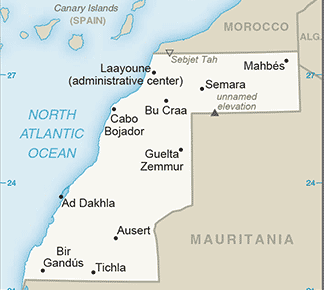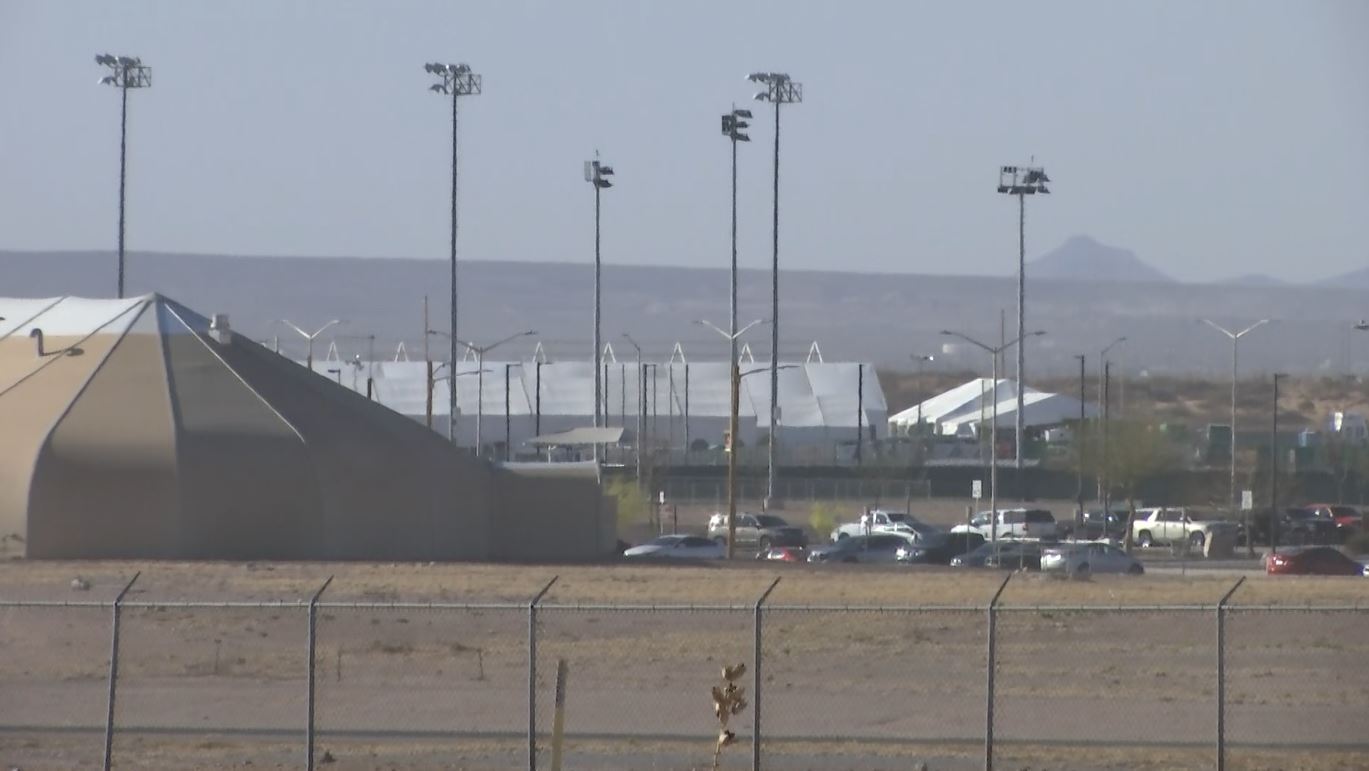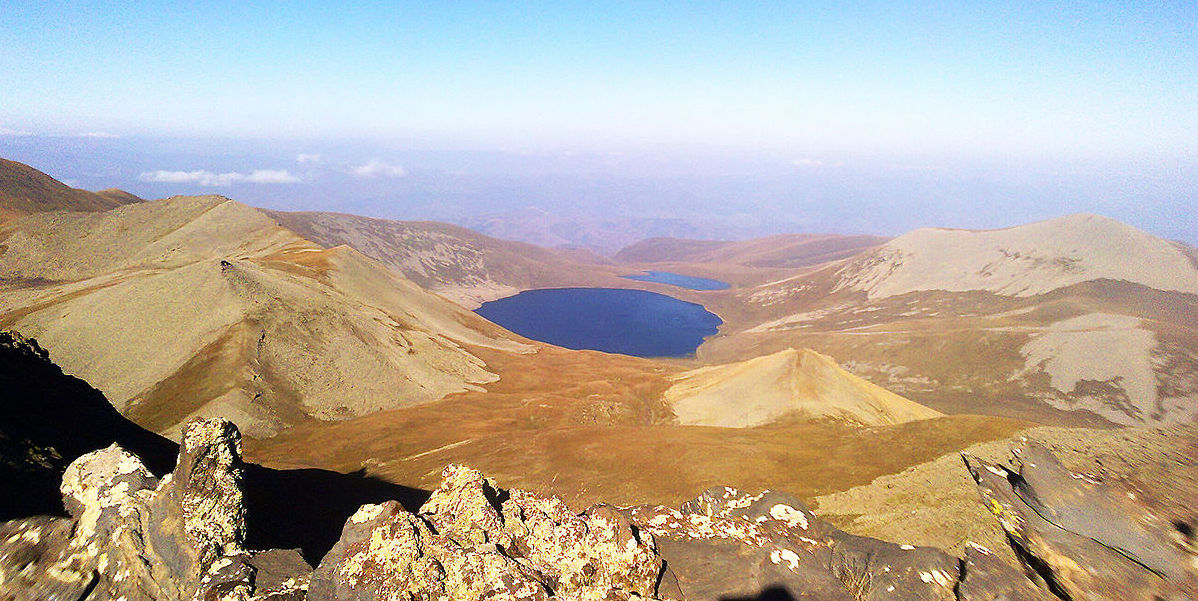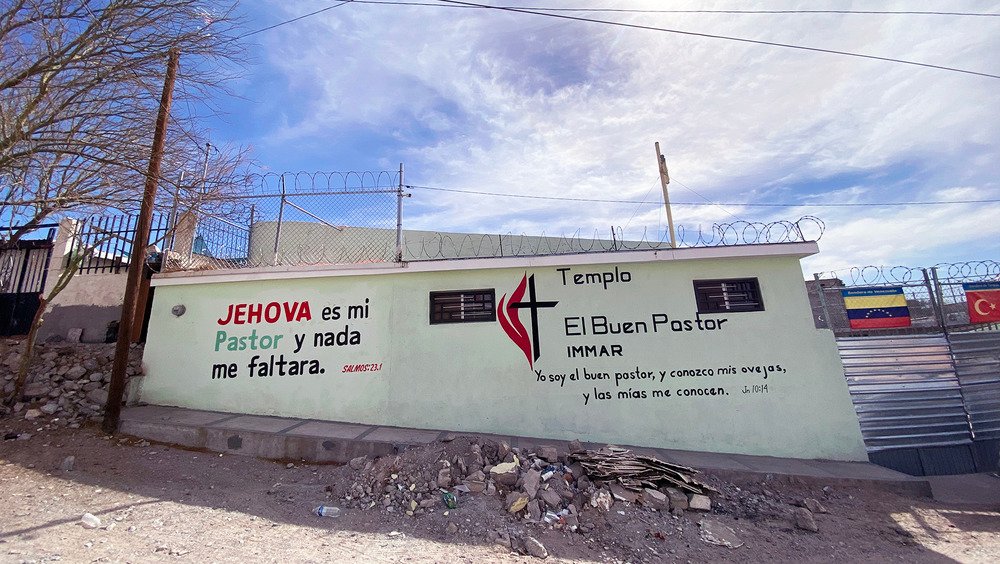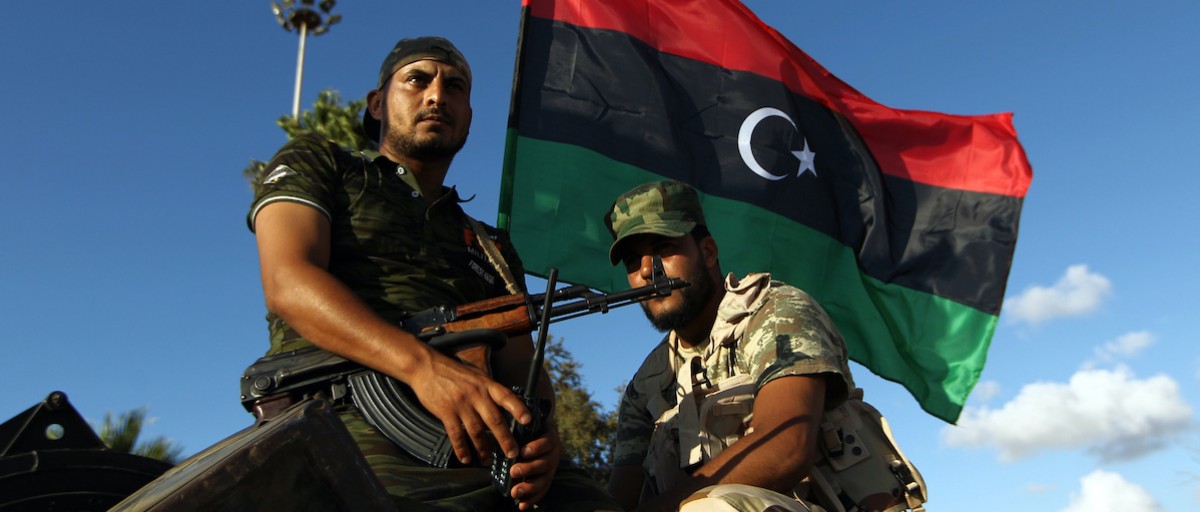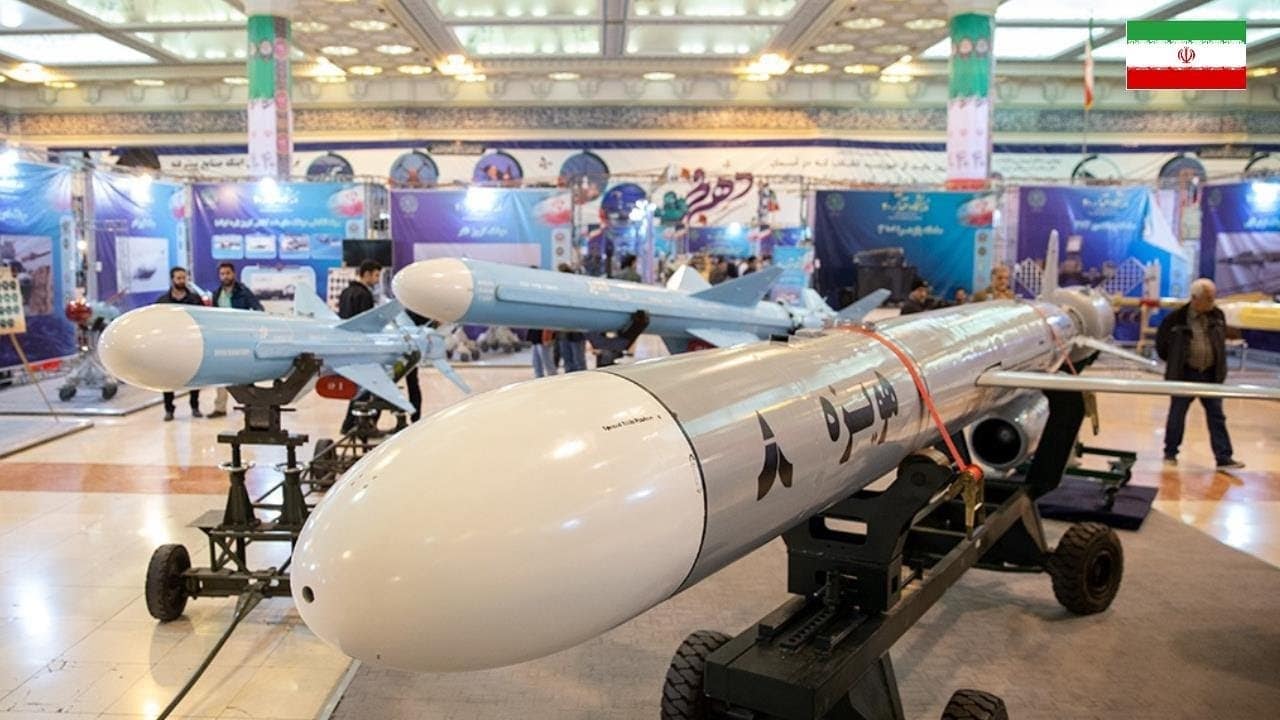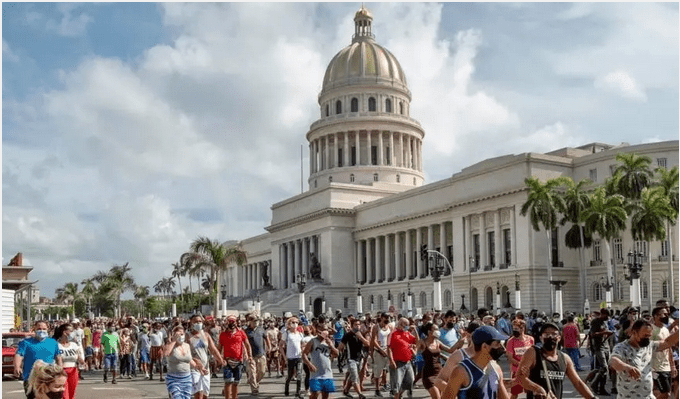
Mass protests break out across Cuba
Seemingly spontaneous protests broke out in Cuba, with demonstrations reported across the island—from Pinar del Río in the west to Santiago in the east. In Havana, hundreds gathered along the Malecón seawall, which was the scene of a brief uprising known as the Maleconazoin August 1994, amid the economic agony of the “Special Period.” The demonstrators later marched on the iconic Capitolio building. Slogans included “Freedom,” “Down with the dictatorship,” “We are not afraid,” “Homeland and life” (a reference to the official slogan “Homeland or death“), and “Díaz-Canel singao [jerk, asshole],” a reference to President Miguel Díaz-Canel. (Photo: Marcos Evora via Havana Times)




